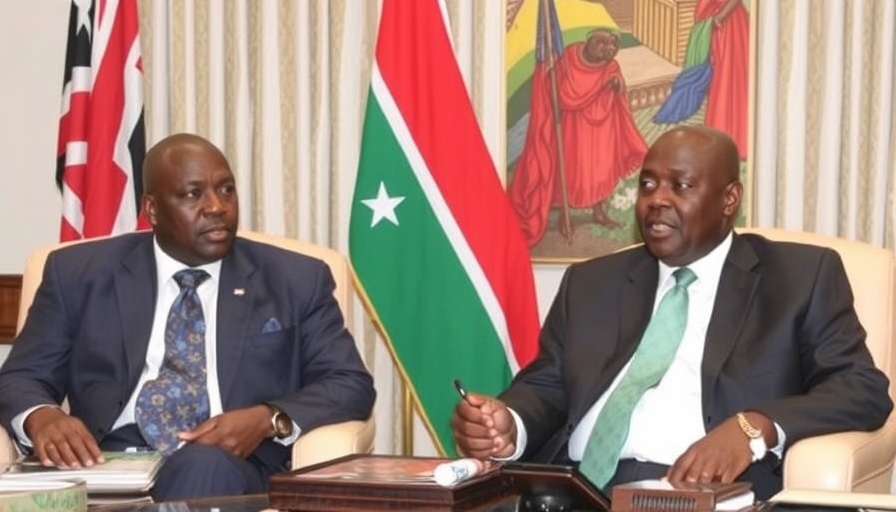
South Sudan Crisis in Tumaini Talks: A Game Changer for African Stability
As political turbulence envelops South Sudan, the resilience of the Tumaini peace initiative hangs by a thread. Just as it appeared that South Sudan was edging toward a more stable coalition government through the Transitional Government of National Unity (TGoNU), recent conflicts demonstrate the fragility of this situation.
The Tumaini initiative was intended to engage various armed groups into a collaborative framework, thus promoting peace and reconciliation. However, as the TGoNU continues to display cracks—especially following violent disputes among its key members—the prospect of substantive negotiations seems increasingly bleak.
Background and Historical Context: Understanding South Sudan's Crisis
The context for this crisis is rooted in the Revitalised Agreement on the Resolution of the Conflict in the Republic of South Sudan (R-ARCSS), which was designed to serve as a blueprint for peace following years of civil unrest and violence. This 2018 agreement has been increasingly undermined as factions within the TGoNU express resistance to any further political negotiations, fearing they could dilute the already precarious balance established by the original peace deal.
Current Events: Tensions Rise Amidst Failed Peace Talks
Reports indicate that Kenya’s President William Ruto has postponed crucial peace discussions between the South Sudanese government and opposition groups that did not sign the 2018 agreement. This delay is particularly concerning as it underscores a disengagement in dialogue, which many fear could lead to renewed violence. The intervention of the Inter-Governmental Authority on Development (Igad) in assessing the situation has also been delayed, reflecting a broader inability to stem the tide of conflict.
Implications for African Governance: A Call for Stronger Diplomatic Efforts
The stalling of Tumaini talks signifies a critical juncture for African governance and diplomacy. As international stakeholders observe South Sudan's turmoil, the ripple effect could be detrimental not only to regional security but also to Africa's reputation in securing peace accords. Collaborative efforts must now focus on reinvigorating diplomatic relations and addressing the underlying political grievances to prevent a backslide into chaos.
Future Prospect: What Lies Ahead for Peace in South Sudan?
The future of the Tumaini initiative—and indeed, South Sudan's stability—remains uncertain. The involvement of external entities, including the EU and UN, will be essential in reinforcing commitments to peace amidst the ongoing strife. Strengthening governance, adhering to previously agreed-upon frameworks, and including diverse political voices in discussions will be important steps forward.
As the geopolitical landscape shifts with the ongoing crises in various parts of Africa, it becomes paramount for leaders to act decisively. The failure to resolve tensions in South Sudan may not only impede local progress but could also undermine broader African economic and political stability.
In light of these developments, it is vital for business leaders, policymakers, and international organizations to inject renewed vigor into peace efforts in South Sudan, ensuring that the mistakes of the past are not repeated as an entire region seeks to chart a stable, collaborative future.
 Add Row
Add Row  Add
Add 


Write A Comment